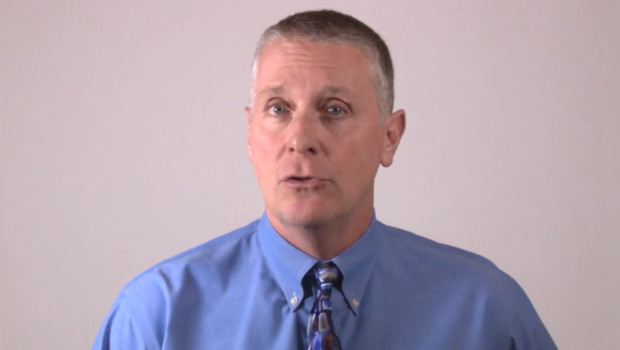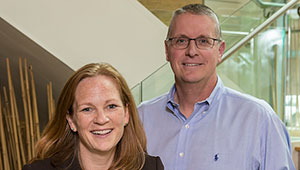How Dr. Leana Wen’s emergency room lessons translate to primary care

Group Health Medical Director for Quality Dr. Matt Handley—photo taken from GHRI's video, "Research Made Real."
Dr. Matt Handley, primary care physician, finds a common theme for acute and long-term care in When Doctors Don’t Listen, a book by the 2016 Birnbaum speaker.
by Group Health Physician and Medical Director for Quality Matt Handley, MD
 |
I’m a primary care physician and Dr. Leana Wen, who will be in Seattle in June to give the Birnbaum lecture, is an emergency room doctor. At first glance, our practices look very different. I usually see patients I know, often to help them with chronic conditions like diabetes and long-term issues like quitting smoking. As an emergency physician, Dr. Wen treats people she doesn’t know, for acute conditions. I wasn’t sure how relevant Dr. Wen’s book with Dr. Joshua Kosowsky, When Doctors Don’t Listen: How to Avoid Misdiagnoses and Unnecessary Tests, would be for my practice. It turns out, the book offers the same advice that I give my patients.
Drs. Wen and Kosowsky begin by criticizing what they call “cookbook medicine” and what I think of as defensive medicine: shunting patients into a clinical protocol or pathway and giving them all the dictated tests and treatments, whether they align with patient needs and preferences or not. Drs. Wen and Kosowsky are right—this is just bad medicine. We all need to work to prevent it.
Here at Group Health, I think our physicians, from family practitioners to emergency doctors, do a good job of recognizing that there isn’t one best way to take care of everybody. We try to carefully select tests, depending on a patient’s situation, to lead to an accurate diagnosis. We use evidence to weigh the benefits and harms of treatment options. When we apply patient preferences to those options through shared decision making, we achieve the best possible medicine. Drs. Wen and Kosowsky know this and they offer advice, especially for patients, to ensure this type of individualized care.
Speak up and ask questions
When Doctors Don’t Listen contains specific instructions for readers about participating in care decisions, particularly before a definitive diagnosis is reached. The book tells how to engage with physicians, even in busy emergency departments. The advice from the authors is what I recommend to patients all the time. When talking with a physician about a particular condition, I tell patients to ask:
- What outcomes might I have and how likely am I to have them? Get quantitative estimates, meaning you should ask for numbers and percentages, not just “likely or unlikely.”
- What different clinical options do I have and what are the risks and benefits of those options? Again, ask for quantitative estimates. In the choices you consider with your doctor, include “the tincture of time”—doing nothing for now. Physicians practicing patient-centered care will often, instead of rushing to a diagnostic judgment, use time as a tool and say, “Let’s wait and watch this and talk again tomorrow.”
- How will choosing different options affect my short-term and long-term health goals? Before an emergency situation arises, have a conversation with your primary care doctor about your health and life goals. Keep them in mind as decisions come up about tests and treatments, whether for acute or chronic conditions.
Choose wisely
Drs. Wen and Kosowsky urge readers to be prepared to clearly communicate questions, concerns, and needs to health professionals. They recommend becoming familiar with basic medical techniques and terms. A great resource for this is Choosing Wisely. Group Health is a partner in this national initiative. We offer its plain-language fact sheets, videos, and other materials, in English and Spanish, on dozens of common medical tests.
The bottom line is that whether you are talking with your trusted primary care doctor or seeing a health professional for the first time, have a conversation. Ask questions. Discuss concerns and choices and preferences. This is what I do with my patients every day.
2016 Birnbaum Lecture

A shared vision: New perspectives on strengthening social determinants of health
Keynote speaker: Dr. Leana Wen, nationally acclaimed TED speaker and health commissioner for the city of Baltimore.
Related news

How Americans can get a better deal on health care
We’re smart shoppers—except when it comes to health care. Here are some ways to upgrade our care quality without paying more.


